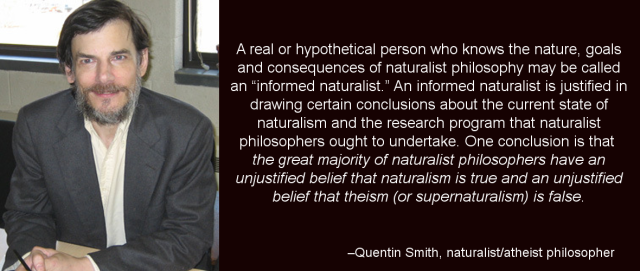In a recent YouTube comment, I mentioned Bill Vallicella (the Maverick Philosopher)’s analysis of the silly atheist soundbite “some of us just go one god further.
And despite my best intentions, I got drawn into a discussion in YouTube comments, which is worse than Twitter.
Since I ended up writing a long thing, here it is:
First, here is the original piece by Bill Vallicella: https://maverickphilosopher.typepad.com/maverick_philosopher/2010/07/some-of-us-just-go-one-god-further.html
The comment he is examining is “Some of us just go one god further.” This comment is not—in itself—an argument, but is typically presented as one of the premises of an enthymeme, which is an argument. The argument spelled out, would be something like:
1 P believes in a god, e.g. Thor.
2 P does not believe in any other gods.
3 But any reason P could adduce for belief in Thor could be adduced for belief in any or all other gods, and
4 Any reason P could adduce for not believing in any other gods could be adduced as reason for anyone, including P, not to believe in Thor.
5 So, P’s belief in the god Thor and only the god Thor, while rejecting all other gods, is not rationally justified. Note that it is logically possible that P is correct.
It could be the case that Ragnarok just occurred and literally all the gods died, except for Thor, who almost died from poison of the Midgard Serpent, but was saved by P with some modern anti-toxins. Thor reports directly to P that all the other gods died, and he is the sole survivor. That is logically possible, that all the gods died, save one, and P finds himself in a position to know this. But that’s not really the issue.
I doubt there is such a person as P, who believes in one god and no others. The fact that atheists think this is the case is due to a lack of education on their part. It depends specifically on two related errors: (1) That God is a god (2) That the difference between monotheism and polytheism lies in the number of gods worshiped. Neither of these is the case, and I have addressed both at length elsewhere:
On (1): https://lastedenblog.wordpress.com/2016/06/06/god-vs-the-gods/
On (2): https://lastedenblog.wordpress.com/2016/09/05/monotheism-vs-polytheism/ These can be summed up with the points
(1′) God is not a god and
(2′) monotheism is worship of God and zero gods (not one god) and polytheism is the worship of many gods.
So, with these in hand, we can reformulate the “one god further” claim and the argument it serves as a premise for. When an atheist says that “he just goes one god further” but actually rejects God on the same grounds that he rejects the various gods, he has not “just gone one god further” because God is not a god. He has committed an error which is analogous to “rejecting the truth of the earth is flat“ and “rejecting the truth of the moon is made of green cheese“ and then going on, like the postmodernists to reject TRUTH ITSELF. If a postmodernist defended his rejection of truth as such by saying that “just goes one truth further,” the error is (or should be) apparent: Truth itself, truth as such, is not A truth, although the word “truth” is applied both the particular truths, particular things asserted to be true, and also to truth itself.
The way it is disanalogous is that God is not the ground of gods in any special way more than God is the ground of all beings, unlike truth itself which, in a certain way, is the ground of all particular truths.
So the phrase reveals itself as an an untrue claim: “In rejecting God, Who is not a god, I just go one god further, because God, who is not a god, is a god.” The claim is untrue because it is literally nonsensical. And so the reformulate argument also falls apart:
1 C believes in God.
2 C does not believe in any gods.
3 But any reason C could adduce for belief in God could be adduced for belief in gods, and [FALSE]
4 Any reason C could adduce for not believing in gods could be adduced as reason for anyone, including C, not to believe in God. [FALSE]
5 So, C’s belief in God, while rejecting gods, is not rationally justified. [FALSE]
So if the atheist who says “I just go one god further” has found a human being P who claims that a god, e.g. Thor, and only Thor, exists, whereas other gods do not (what happened to Odin and Loki?), then his description would make sense. But I am unaware of the existence of any such person P, and it would be entirely reasonable to ask P to justify his one-god-only belief, because it does seem prima facie bizarre, unless justified by a scenario like I laid out above.
But if the atheist who says “I just go one god further” is speaking to a human being C who believes not in any gods, but in God, then his “description” of the situation is in fact a misdescription, because he is confusing God with a god. When one rejects God, one is not rejecting a god, or “one more god.” Belief or rejection of God has nothing to do with belief or rejection of gods.
The gods are beings (if there are any, which I doubt). God is the transcendent ground and source of Being—the ἀρχὴ τῆς οὐσίας τε καὶ τοῦ εἶναι; God is “beyond Being, transcending it in dignity and power” “ἔτι ἐπέκεινα τῆς οὐσίας πρεσβείᾳ καὶ δυνάμει ὑπερέχοντος” [Socrates, Plato’s Republic ]. In brief, since God is not a god, one can never justify rejecting God on the grounds of “just going one god further.” That is neither an accurate description or observation or characterization of the situation, nor can it serve as premise in a cogent atheistical argument.


